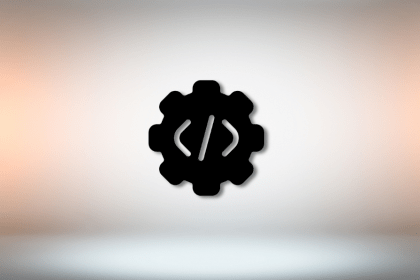
@container scroll-state: Replace JS scroll listeners nowCSS @container scroll-state lets you build sticky headers, snapping carousels, and scroll indicators without JavaScript. Here’s how to replace scroll listeners with clean, declarative state queries.

Explore 10 Web APIs that replace common JavaScript libraries and reduce npm dependencies, bundle size, and performance overhead.

Russ Miles, a software development expert and educator, joins the show to unpack why “developer productivity” platforms so often disappoint.

Discover what’s new in The Replay, LogRocket’s newsletter for dev and engineering leaders, in the February 18th issue.
Would you be interested in joining LogRocket's developer community?
Join LogRocket’s Content Advisory Board. You’ll help inform the type of content we create and get access to exclusive meetups, social accreditation, and swag.
Sign up now
8 Replies to "New in TypeScript 3.7"
pretty neat. now, what about interface extension methods? Just like C# has.
I need interface static methods
Great post!
So typescript is going to have pretty much every feature C# has. (what a coincidence, they’re designed by the same person)
The optional chaining operator just tells me that I am going to show up at client sites where every single dot in the application is preceded by a question mark, the same way that async permeates through the code.
It tells me that nobody is actually going to know anything about the data that runs through the system, and it’s going to hide bugs that are ridiculous to solve, because they could have happened at any `?.` upstream from where your data was supposed to be.
Moreover, this affects all downstream systems, as well.
I’m not saying that 10,000 null checks is good, either. What I am saying is that we are programming backwards. What I am saying is that we should have systems that are hermetically sealed, and operate only on types that are known, not types where every member is optional/nullable. If you can’t build an instance of a type with the pieces you have been given (plus any reasonable defaults), then you should take a different path in code, rather than passing in a tree that is garnished with nulls.
The invention/inclusion of null in programming languages was Tony Hoare’s billion dollar mistake, and instead of thinking about how we can program without it, we are making it easier to make everything null, at all times, without crashing.
However, the null coalescing operator is a good tool for building those known and trusted data types from untrusted data sources (server responses, database fields, localStorage, user input), *if* the field you are settling has a valid default/empty/identity state. Optional chaining would be fine to use in the case where you were grabbing an expected value from an unknown data source, and using the coalescing operator to set the default, when building a closed system of well-defined types… but we all know that isn’t how it’s going to be used.
Personally I think the worst thing about their announcement blog post is the dubious formatting of ternary operators. I mean, everybody knows that you’re supposed to format them
“`
var result = condition
? first_expression()
: second_expression()
“`
I believe they are just adding features ahead of their official adoption into javascript. Example: optional chaining was not added to typescript until it was stage 3 in the tc39:
https://github.com/tc39/proposal-optional-chaining
Good point